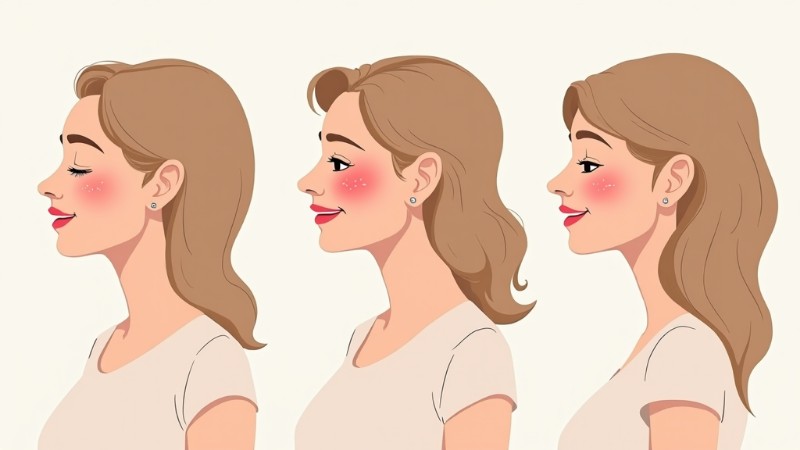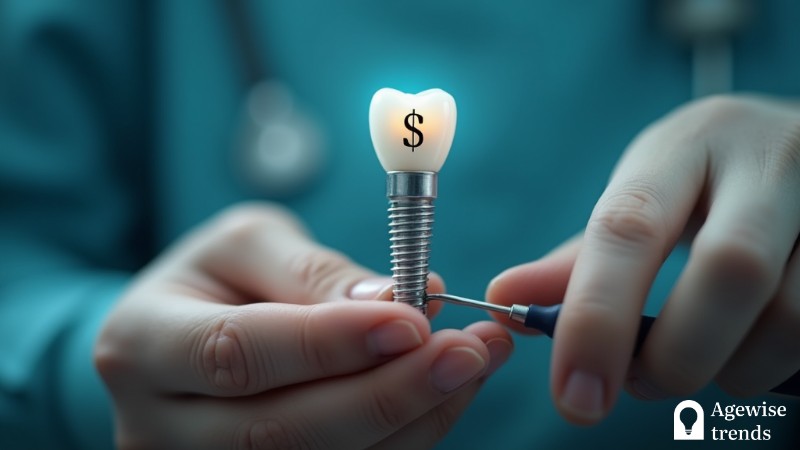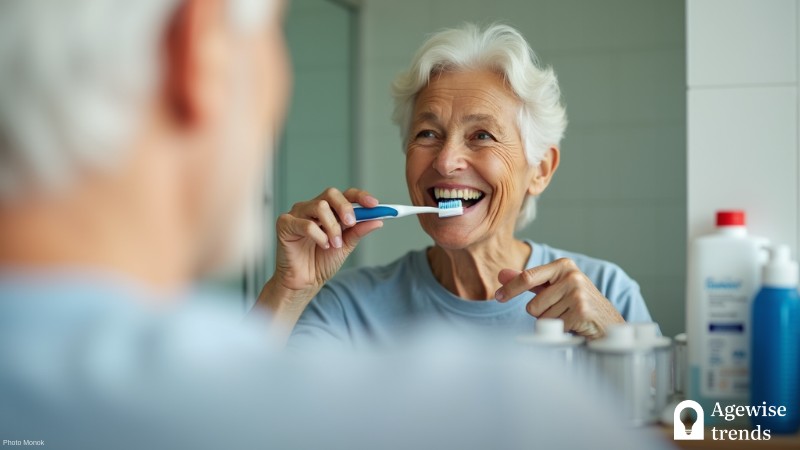Hormones play a crucial role in shaping various aspects of physical health, including dental well-being. Women experience different hormonal shifts from puberty through menopause, impacting everything from gum sensitivity to jawbone density.
Recognizing the connection between dental and physical health, especially as we age, becomes essential. Hormones influence gum sensitivity, saliva production, and even jawbone health, meaning that oral care should be an integral part of health management at each stage of life. Through proactive dental habits and regular dental visits, women can protect their oral health and overall well-being at every age.
Key Takeaways
Hormonal fluctuations across a woman’s life stages impact her oral health, making it essential to adopt consistent oral care practices that complement the body’s unique changes over time.
- During puberty, hormonal surges increase gum sensitivity, making women more prone to inflammation and bacterial buildup if they neglect oral hygiene routines.
- Pregnancy can present unique oral health challenges, with up to 75% of pregnant women experiencing gingivitis due to increased hormone levels, emphasizing the need for diligent dental care during this period.
- Menopause introduces significant hormonal changes that impact bone density and saliva production, increasing the risk of receding gums, tooth sensitivity, and dry mouth, which can be managed through regular dental evaluations and good oral hygiene practices.
Puberty: Hormonal surges and oral health sensitivity
During puberty, changes in estrogen and progesterone increase blood flow to the gums, resulting in heightened sensitivity. This sensitivity can make gums more prone to inflammation and bacterial buildup, leading to conditions like gingivitis if left unaddressed.
Dr. Maiara Hister-Cockrell, a professor at the University of Texas Health Science Center’s School of Dentistry, explains that hormone-induced gum inflammation requires vigilant dental care during these years. This is particularly important as teenagers gain independence and may become less attentive to oral hygiene routines.
As teenagers navigate new social settings, oral hygiene practices may occasionally be neglected. Parental oversight typically decreases, which can result in missed brushing or flossing. Dr. Hister-Cockrell notes, “Neglecting oral hygiene allows bacteria to colonize around the teeth, leading to gingivitis and, over time, periodontitis.” Maintaining good oral hygiene through consistent brushing, flossing, and dental checkups is crucial during this phase to prevent long-term dental issues.
Menstrual cycle and its impact on gum health
Women’s menstrual cycles can introduce hormonal shifts that affect oral health, often increasing gum sensitivity and, in some cases, causing canker sores. Increased levels of estrogen and progesterone before menstruation can cause gums to become more susceptible to inflammation and bleeding, although these symptoms usually diminish afterward. However, persistent discomfort should be evaluated, as it could indicate broader health concerns.
Hormonal fluctuations can also trigger canker sores, which are small but painful mouth ulcers that typically heal within a week. The gums may become more susceptible to bleeding, particularly during brushing and flossing. For women experiencing recurring symptoms, dental consultations are recommended to manage discomfort and address any underlying issues early.
Contraceptives, pregnancy, and dental health
The use of hormonal contraceptives and the hormonal shifts during pregnancy significantly affect oral health. Both states increase estrogen and progesterone levels, which can lead to gum inflammation and a greater risk of bacterial colonization, heightening the chance of developing gingivitis if dental hygiene isn’t maintained.
Hormonal contraceptives and dental procedures
Women using hormonal contraceptives may experience different reactions to dental procedures. For example, studies show a higher risk of dry socket—a painful condition where a blood clot dislodges from the extraction site—following tooth extractions in women on birth control. To minimize this risk, dentists often recommend scheduling procedures during the “sugar pill” week when hormone levels are lowest.
Pregnancy: A time of increased oral health risks
Pregnancy can present unique oral health challenges, with up to 75% of pregnant women experiencing gingivitis due to increased hormone levels. Maintaining dental and gum health as we age and especially during pregnancy becomes a priority, as gum disease has been linked to premature birth and low birth weight. Bacteria from gum infections can potentially reach the fetus through the bloodstream, emphasizing the need for diligent dental care during pregnancy.
Dr. Hister-Cockrell suggests that women prioritize a dental visit during the second trimester when the risk of pregnancy-related complications is generally lower. At this stage, it’s easier to address minor infections, inflammation, or gum sensitivity without causing discomfort for the expectant mother. Routine cleanings and evaluations during this period help ensure both maternal and fetal health.
Menopause: Managing bone loss and dry mouth
Menopause introduces significant hormonal changes, particularly a decrease in estrogen and progesterone. This drop impacts not only general physical health but also dental well-being, especially in terms of bone density and saliva production. “Estrogen and progesterone influence the density of bones and the stability of the jawbone,” Dr. Hister-Cockrell explains, highlighting how menopause affects both dental and physical health.
Bone density and oral health in menopausal women
As bone density declines, women become more vulnerable to receding gums, increased tooth sensitivity, and even shifting teeth, which can affect bite alignment and chewing comfort. Studies show that women may lose up to 10% of their bone mass in the first five years following menopause, affecting both their overall and dental health.
Regular bone density checks with a general practitioner, paired with dental evaluations, can help monitor and address these risks, maintaining gum and bone health as part of holistic wellness.
Managing dry mouth and burning mouth syndrome
Menopause can reduce saliva production, leading to xerostomia, or dry mouth, which increases the risk of cavities and gum disease. Saliva is essential in regulating oral pH and preventing bacterial growth. A lack of saliva allows bacteria to thrive, leading to an increased risk of dental decay and infections.
Additionally, some menopausal women may experience burning mouth syndrome, a condition causing a painful, burning sensation. Addressing these symptoms with a dentist not only eases discomfort but also reduces the risk of other oral health issues.
Best practices for maintaining oral health
To support overall well-being, women are encouraged to adopt consistent oral care practices that complement the body’s unique changes over time. Good dental hygiene and professional care are instrumental in maintaining both dental and physical health, especially during periods of hormonal change.
Brushing and Flossing: Brushing twice a day with fluoride toothpaste and daily flossing are fundamental practices that help remove plaque and prevent gum disease.
Mouthwash: Using an antibacterial mouthwash can help reduce plaque buildup and support gum health, especially during hormonal shifts that make gums more sensitive.
Routine Dental Checkups: Regular dental visits enable early detection of potential issues, ensure professional cleaning, and allow for personalized advice based on life stage and hormonal status.
Diet and lifestyle choices: A balanced diet and thoughtful lifestyle choices contribute significantly to long-term dental and gum health. Drinking water frequently, limiting sugar intake, and incorporating calcium and vitamin D-rich foods help reinforce strong teeth and bones. Additionally, avoiding smoking and excessive alcohol consumption can dramatically reduce the risks of gum disease, oral cancers, and other dental issues.
Oral health for overall wellness
Hormonal fluctuations tied to puberty, menstrual cycles, pregnancy, and menopause create distinct oral health needs for women. Whether it’s navigating sensitive gums during adolescence, addressing bacterial vulnerabilities during pregnancy, or managing bone loss in menopause, dental care is an essential aspect of maintaining both dental and physical health. Dental health plays a crucial role in overall wellness, and supporting oral health through various life stages can help women achieve lasting health benefits as they age.
Each phase in a woman’s life presents unique oral health considerations, underscoring the importance of comprehensive care strategies that adapt to changing needs. Acknowledging the link between dental and physical health throughout all life stages highlights the importance of oral care in promoting overall wellness. By integrating these best practices into their daily routines, women can protect both their dental and systemic health, supporting well-being at every age.














